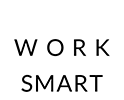Software Update 15
New iOS version is in review, with performance improvement with connection speed. Android update is coming next week.
The next few software updates will revolve around closer integration of focus skill training, designed specially to tackle the improvement of 4 types of focus.
We have iterated 3 versions of the training manual and are now looking for volunteers to give us feedback to improve it before the final release.
It could be a great opportunity to discuss personal focus challenges, and be involved in troubleshooting and adapting the skills to yourself.
However, it is likely that you would be interested in different Focus Skills (distraction, procrastination, fatigue, flow). Some would be much more relevant to you than others, we have put up a quick questionnaire to find out your preference.
Best wishes,
Mick & The FOCI Team
Volunteer for Focus Skill Training Manual Feedback
P.S.
If you face any problems with shipment, message me at team@fociai.com and we’ll get it sorted.
Also, we have made the content page and preface available at the end of this update, to give a sense of the writing style of the main Focus Skills.
Foundation: Discover your Achilles’ heel of your performance
Identify the 5 main types of vicious loops that could be affecting you all the time.
Level 1: Tune out your distractions at will
Understand the perennial chaos happening inside your brain and bring it under control in minutes with biofeedback.
Level 2: Terminate procrastination in a snap
Power up the most well researched psychological technique with tech augmentation.
Level 3: Boast a longer focus span than others
Stay balanced with fatigue and stress more effectively with added emotion-awareness and the right countermeasures.
Level 4: Triumph in getting into your peak mental performance
Learn to tune your emotion states with breathing pacing technology to get into psychological ‘flow'.
Preface
Apple founder, Steve Jobs didn't let his kids use the iPad, or really any product their dad invented.
Microsoft Founder, Bill Gates, imposed a cap on screen time for his daughter.
Google’s CEO, Sundar Pichal, didn’t let his 11-year-old son have a smartphone.
These are not mere coincidences.
And just as you would have guessed, this has to do at least in part, with the negative impact of digital distraction on both learning and academic performance.
But why?
“Attention is a resource—a person has only so much of it.”
Matthew Crawford
In fact we are experiencing one of the biggest goldrushes in the past 2 decades. Only this time it is not gold that is being mined. It is our attention.
Swarms of internet and gaming companies make use of psychological hacks, similar to that of slot machine, to get us into an addiction loop so that we can use their product longer and more frequently.
Why are they doing this to us, and even to children?
Monetize our attention.
To put in perspective, each ‘click’ on the ads, our voluntary or involuntary divulging of our attention, generates on average 1-3 USD for these companies, and in industry jargon this is called CPC: cost-per-click.
Just as you might have bet on, these ads are indeed very arousing to grab our attention and interrupt our focus.
It is just good business, nothing personal.
What’s so bad about distractions?
We all want some lovely distractions along the way.
But what is important is that we should be the one who makes the choice about when and what to divert our attention to, not to be trapped in distraction and procrastination loops, and to be left with little choice at the end of the day.
The ability to make this choice is our focus.
Sadly, the key decision making region of our brain (prefrontal cortex) doesn't fully mature until the age of 25. It becomes more important that the young should be equipped with the necessary skills and knowledge to make the choice of what to focus on.
If left unchallenged, the deprivation of our focus due to commercial interest on our attention would create a chasm of a generation of a large base of low skilled and attention deprived workforce and on the other hand, an small elite group of executives, who can make full use of technological advances, and at the same time benefiting from laser sharp focus.
This is happening already, with 7-33% of undergraduates taking smart drugs to boost their focus. Whereas these drugs were originally developed to treat attention deficit problems.
The Matthew effect of "the rich get richer and the poor get poorer” would aggravate in this age of attention economy.
Why FOCI?
With FOCI, we strive to democratize knowledge of countering the negative effects of distraction, and earn a sharper focus where we can have the choice to indulge in whatever distractions we choose to, and not be carried away unwittingly.
Because we all deserve this choice.
What should we do?
The 2019 Nobel Prize winning work on economics attributes the universal traps of ignorance and inertia as one the main factors to poverty.
So.
Break the inertia by getting started today.
Acquire the skill and knowledge of improving focus, whether it is for yourself, or the young.
Let’s do this.


